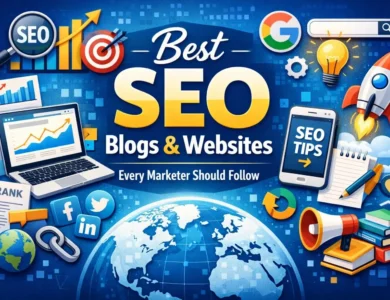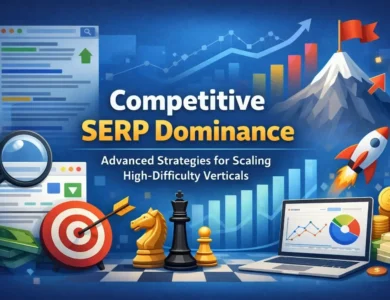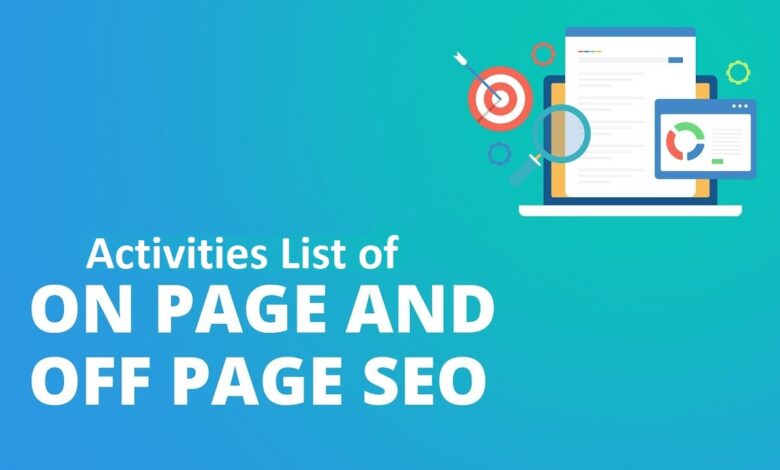
In today’s digital-first world, Search Engine Optimization (SEO) has become the backbone of online visibility and success. Whether you run a business website, blog, or e-commerce store, understanding how to optimize your presence on search engines is vital. But SEO isn’t just one thing—it can be broadly divided into On Page SEO and Off Page SEO.
Both activities work together, like two sides of a coin, to help your website rank higher, draw qualified traffic, and generate leads. In this article, we’ll break down exactly what on page and off page SEO activities are, why they matter, and how you can implement them for maximum results.
What is SEO?
SEO is strategies, techniques, and tactics to increase the number of visitors to a website by obtaining a high-ranking placement in search results.
SEO has two major components, On-page SEO and off-page SEO.
What is On Page SEO?
On Page SEO refers to all the optimization techniques you apply directly on your website to make it search engine-friendly. It ensures that search engines, like Google, can easily crawl, understand, and index your pages while providing a top-notch user experience.
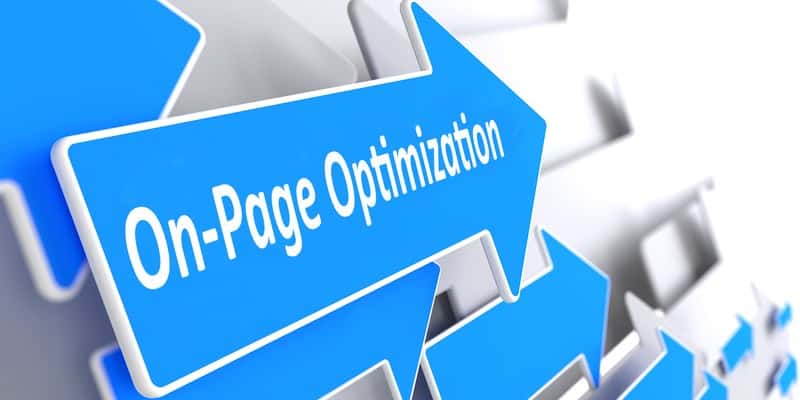
Key On Page SEO Activities
- Keyword Research and Placement
-
- Identify target keywords that match search intent.
- Place them naturally in titles, headers, meta descriptions, URLs, and content.
- Title Tags and Meta Descriptions
-
- Craft unique, keyword-rich titles (under 60 characters).
- Write compelling meta descriptions (150–160 characters) to boost click-through rates.
- Header Tags (H1, H2, H3)
-
- Organize content with clear headings.
- Use keywords where relevant for better indexing.
- URL Optimization
-
- Keep URLs short, descriptive, and keyword-focused.
- Example: www.yoursite.com/on-page-seo-tips instead of www.yoursite.com/page-id=123.
- Content Quality
-
- Publish original, engaging, and informative content.
- Use proper formatting with bullet points, images, and examples.
- Internal Linking
-
- Link related pages within your website to improve navigation and distribute page authority.
- Image Optimization
-
- Use descriptive alt tags and compress image sizes to improve load speed.
- Mobile-Friendliness & Page Speed
-
- Ensure responsive design across devices.
- Optimize server performance, caching, and image sizes for speed.
In short, On Page SEO helps search engines understand your site better while improving the user experience.
On-Page Optimization Activities
- Keyword Research & Analysis
- Competition Analysis
- Content Optimization
- Internal Linking Structure Changes
- URL Structure Changes
- Site-map updating / creation
- Keyword URL Mapping
- Creation of Meta Information
- Title tag (LSI Based)
- Description tag (LSI Based)
- Alt tags (LSI Based)
- HTML Coding, Validation & Correction
- H1, H2 & Strong tags
- Canonical Issue Check
- Error 404-page optimization
- XML Sitemap
- Robots.txt
- URL Architecture
- Google and Bing Site Map Authentication
- Google Search Console Setup
- Google Tag Manager Setup
- Google Analytics 4 Setup
- Google Business Profile Setup and Optimisation
What is Off Page SEO?
Off Page SEO refers to all the actions taken outside your website to impact your rankings in search engine results pages (SERPs). It builds your site’s authority, credibility, and popularity by showing search engines that your content is trustworthy and valuable.
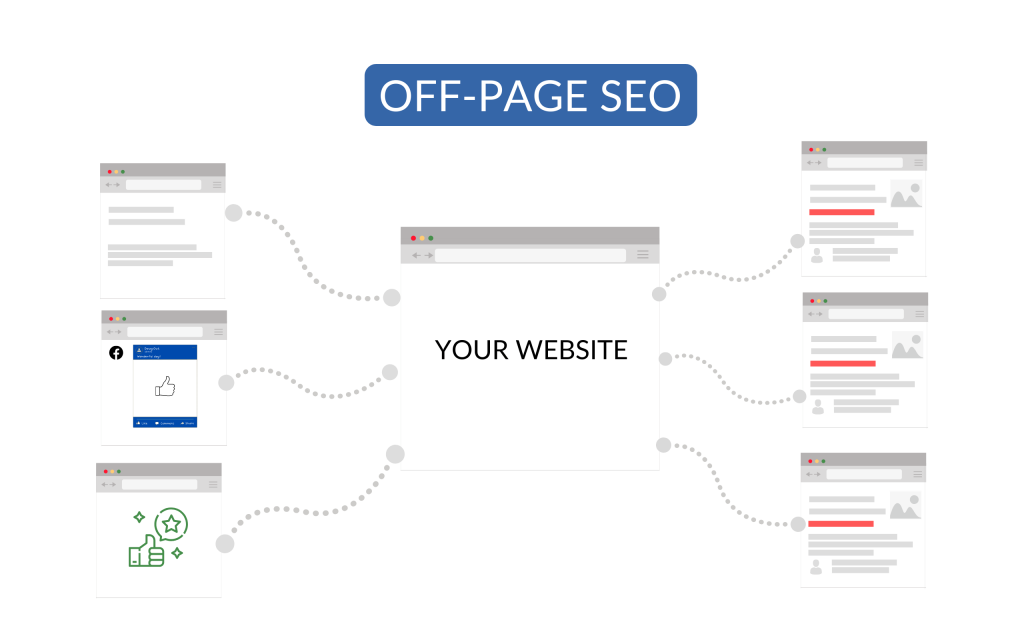
Key Off Page SEO Activities
- Link Building
-
- Acquire backlinks from reliable and authoritative sites.
- Focus on quality over quantity (Google values relevance and authority).
- Social Media Engagement
-
- Promote content on platforms like LinkedIn, Facebook, and Twitter.
- More shares = higher visibility and potential traffic boosts.
- Guest Blogging
-
- Contribute articles to authoritative industry blogs.
- This helps expand reach and earns valuable inbound links.
- Influencer Outreach
-
- Collaborate with influencers in your niche to gain exposure and build brand trust.
- Forum Participation
-
- Engage in industry-relevant forums and Q&A websites (like Quora or Reddit).
- Add value by answering queries and linking your content naturally.
- Local SEO & Citations
-
- List your business on Google Business Profile, Yelp, directories, and local listings.
- Positive reviews and NAP (Name, Address, Phone) consistency help boost rankings.
- Press Releases & Content Marketing
-
- Share company news or publish high-value content that gains natural backlinks.
Off Page SEO essentially enhances your website’s reputation and authority across the internet.
The most important off-page SEO Tips are:
Off-Page Optimization Activities
- Guest Posting
- Directory Submission
- Social Bookmarking
- Social Sharing
- Blog Commenting
- Forum Submission
- Blogpost (Blogger & Wordpress)
- Web 2.0 Submission
- Article Submission
- Press Release Submissions
- RSS feed generation and submissions
- Review Submissions
- Business Profile Creation
- Q & A Submissions
- Document Sharing(PDF or PPT)
- Classified Ads Submission
- Video Submission & Promotion
- Photo Submission & Promotion
- Local Business Listing (Google, Bing @ Local Listing Sites)
- Make 1 or 3 Way links
- Etc.
On Page SEO vs. Off Page SEO: What’s the Difference?
| Factor | On Page SEO | Off Page SEO |
| Focus Area | Inside the website | Outside the website |
| Goals | Improve content quality & structure | Build credibility & authority |
| Key Activities | Keywords, meta tags, internal linking, speed | Backlinks, social media, guest posts |
| Direct Control | Yes (done by you on your site) | No (depends on other sites & communities) |
| Impact | Better user experience & crawlability | Higher authority & strong external signals |
Why Both On Page and Off Page SEO Are Important
- On Page SEO makes sure search engines understand your website.
- Off Page SEO convinces search engines that others trust your content.
- Together, they boost rankings, drive organic traffic, and increase conversion rates.
How to Create a Balanced SEO Strategy
- Start with thorough keyword research
- Optimize your site structure, speed, and mobile responsiveness
- Publish consistent, high-quality content with natural keyword integration
- Build a backlink profile by networking with industry leaders
- Engage with your audience on social media platforms
- Track performance using tools like Google Analytics 4 and Search Console
Final Thoughts
Now you know the difference between on page SEO activities and off page SEO activities. Both play complementary roles in driving visibility, authority, and traffic to your website. If you optimize your site structurally (on page) and build connections externally (off page), you’ll create a powerful SEO foundation that boosts rankings and delivers long-term results.
Ready to Grow Your Online Presence?
Start implementing these SEO best practices today! Whether you’re a beginner or a business owner, focusing on both on page and off page SEO strategies will help





